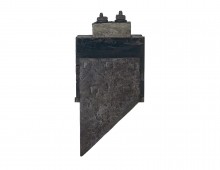Tagged with Cartoons
Resource : William Wilberforce speaking out against slavery in the House of Lords
The movement to abolish the Transatlantic slave trade was a long and difficult struggle. Campaigners for abolition used every means they could, including sugar boycotts, meetings, petitions, publications, and circulating images showing its shameful nature, to bring the issue to people’s attention in Europe. Enslaved Africans played an essential part, having long resisted their enslavement and treatment through ‘go-slows’, revolts, intellectual and religious claims, and demonstrable capacity to retain and transmit their African or creole (mixed) cultures and languages. Escaped or freed slaves forced judges and social elites to confront the issue through court cases, publications, and performances. Propelled by much of this pressure and evidence, William Wilberforce led the long political campaign to outlaw the slave trade in Britain.
Resource : Rebecca and her daughters
In the late 1830s and early 1840s, a series of riots took place in south and mid Wales. Male farmers and labourers – many of them dressed in women’s clothes – rioted in protest against unfair laws and taxes, low wages and toll roads. The rioters called themselves ‘Rebecca’s daughters’ and their actions became known as the Rebecca riots.
Resource : The Plumb-Pudding in Danger
This print was one of over a thousand satires produced by the celebrated caricaturist, James Gillray, who became known as the ‘father of the political cartoon’. In the 18th century, cartoons and caricatures were a popular way of mocking the establishment and calling them to account. They would be discussed and enjoyed in shop windows, coffee houses and taverns. The arrival of the industrial printing press in the 1800s helped to spread them far and wide, through broadsides (posters), newspapers and pamphlets. This one was inspired by the resumed hostilities and ongoing rivalry between Britain and France in 1805.
Resource : The Blessings of Peace or the Curse of the Corn Law
This satirical cartoon, by George Cruikshank, is a comment on what became known as the Corn Laws – one of the most unpopular pieces of legislation ever to be introduced by the British Government.


